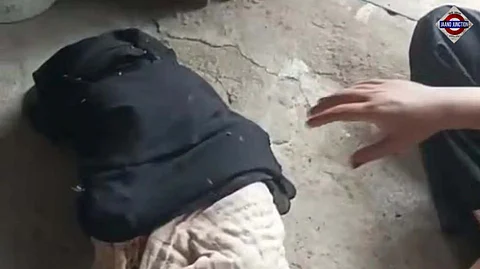

Patna, Bihar: In a horrifying crime that has sent shockwaves through Bihar and beyond, two young children, siblings Ansh and Anjali, were allegedly burnt alive inside their home in the Janipur area of Patna. The victimised children were the children of an AIIMS Patna nurse, Shobha Devi, who returned home from work to find her children murdered in a brazen, suspected criminal attack.
The children had just returned from school when unknown assailants broke into the home and set them on fire, delivering a devastating blow to the family and community
First responders from the local police station reached the scene swiftly. While the exact motive is still under investigation, authorities are treating it as a criminal act, not an accident
The shocking murder of two innocent children inside their own home is not an isolated incident, it's the latest in a growing pattern of violence that has come to define Bihar’s law and order crisis.
Just days before this tragedy, Paras Hospital in Patna witnessed a brazen daylight shooting, where a man was gunned down inside the hospital premises, sending panic across the city. This wasn't just an attack, it was a clear message that even medical facilities are no longer immune to criminal audacity.
Similarly, the murder of businessman Ashok Khemka in Sitamarhi, a well-known figure in the local community, further exposed the fragile state of policing. Khemka was shot dead in broad daylight in what many allege was a targeted killing by extortion gangs. His death sparked widespread protests and demands for accountability, but the perpetrators remain at large.
These cases — the burning of children, the Paras Hospital shooting, and the Khemka murder — collectively reflect a disturbing trend: a complete erosion of fear of the law. Criminals are not operating in the shadows; they are striking in the open, confident in the system's paralysis.
Locals now fear not just theft or harassment, but murder without consequence. Residents, particularly professionals and middle-class families, are questioning their safety, their silence turning into simmering anger. If AIIMS nurses, businessmen, and patients aren’t safe — who is?
This isn’t merely about individual crimes. It’s a reflection of systemic failure — a police force stretched thin, political will in question, and a justice mechanism that's yet to match the urgency on the ground.
The blood-curdling details have prompted significant outrage from opposition parties and civil society alike, with many accusing the ruling coalition in Bihar of actively enabling criminal elements.
Critics argue this is not just governance failure — it's collective complicity, as authorities appear unable or unwilling to bring such perpetrators to justice.
This tragedy comes at a critical moment. As voters head to the polls, broader questions about safety, justice, and trust in the state loom larger than ever:
Can people have faith in a system that allows criminals to terrorise innocent children?
Will political leaders take responsibility — or remain silent as victims continue to suffer?
Two children, Ansh and Anjali, were allegedly burnt alive in their own home in Patna’s Janipur area.
The incident targeted the children of an AIIMS nurse and is being treated as a severe criminal atrocity.
Many see this event as symbolic of a deeper breakdown in law and order in Bihar, raising serious concerns ahead of the assembly polls.
As investigations continue, citizens and political observers alike are demanding accountability.
